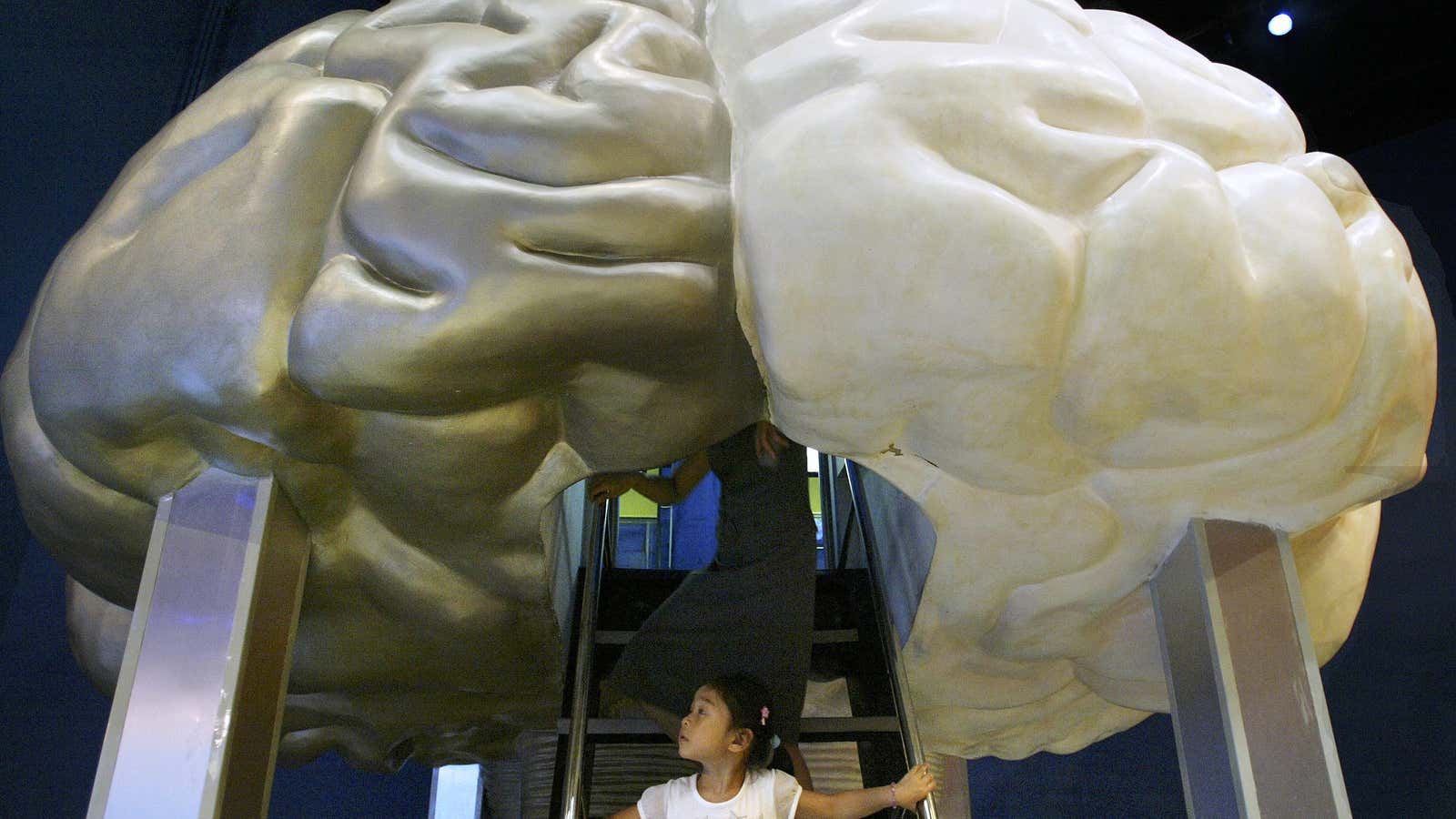As part of the OECD’s 2015 test of 15-year-olds (pdf) around the world, called PISA, the group asked students what occupation they expected to be working in when they were 30. When it came to science—the focus of this year’s PISA results—the results were confusing.
American kids are plenty fired up to be scientists, with 38% of 15-year-olds saying they expect to work in a science-related career. The average among OECD countries is just 24%. Only Mexican kids beat the Americans, with 41% saying they want to join the field.
This is great news for the US, considering some of the fastest-growing, highest-paid jobs are science-related, be it in software, cloud-computing, robotics, biotechnology, medicine, engineering or programming.
The only problem: In science education, the US is not exactly a stellar performer. In the 2015 PISA assessment, the US ranked 19th in science, out of 35 OECD countries. (And that was better than it did in reading and math, where it ranked 20th and 31st, respectively). Including non-OECD countries, the picture is even bleaker:
*Includes the four PISA participating China provinces: Beijing, Shanghai, Jiangsu, Guangdong.
The odd thing is that in countries such as Finland, Germany and Japan, where a much higher percentage of kids do well in science, only one in five express much interest in pursuing the profession.
Andreas Schleicher, head of education and skills at the OECD, called the mismatch a “puzzle.”
“In high-performing countries, they do well on science tests and don’t want to be scientists,” he said at a press conference announcing the results. “In the US they want to be scientists but they lack the knowledge.” Ouch.
Fortunately, there are countries that are exceptions to this rule. Singapore, Canada, Slovenia, Australia, the UK, Ireland, and Portugal all hit the magic intersection of high test scores, a strong belief in scientific inquiry, and a desire to work in science.
Also, the news from the US was not all bad. American students are generally more likely to report that they enjoy science and that they feel their efforts in it will pay off. They are also likely to believe their actions can produce desired effects, such as solving a difficult problem. This is good, because people who enjoy the work and feel they are doing well at it are more likely to pursue science careers.
Oddly—or perhaps not so oddly—Americans were also are more likely to overstate their own scientific abilities. The 2015 PISA test asked students to say how easy they thought it would be for them to do eight things, such as “recognise the science question that underlies a newspaper report on a health issue” or “discuss how new evidence can lead them to change their understanding about the possibility of life on Mars.” For each of these, students could report that they “could do this easily,” “could do this with a bit of effort,” “would struggle do to this on [their] own,” or “couldn’t do this”.
Students in the US reported their ability to do these things at or above the OECD average for seven of the eight questions, in spite of their middling performance when it came to actually taking the test and answering such questions.
The US will have a long way to go to catch the high performers: just 9% of 15-year-old American students were top performers in science, compared to 15% of their peers in Japan, Singapore and Taiwan.
